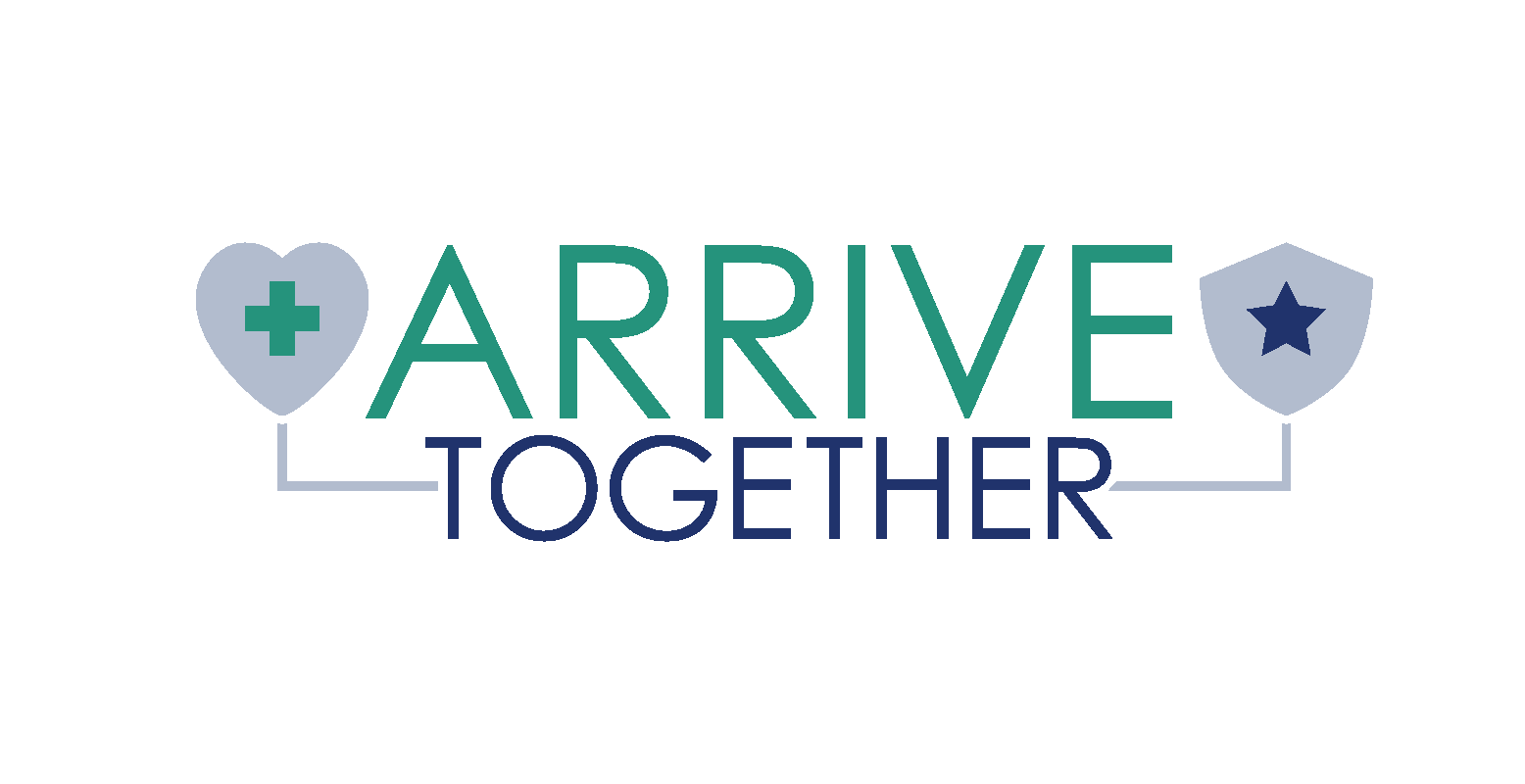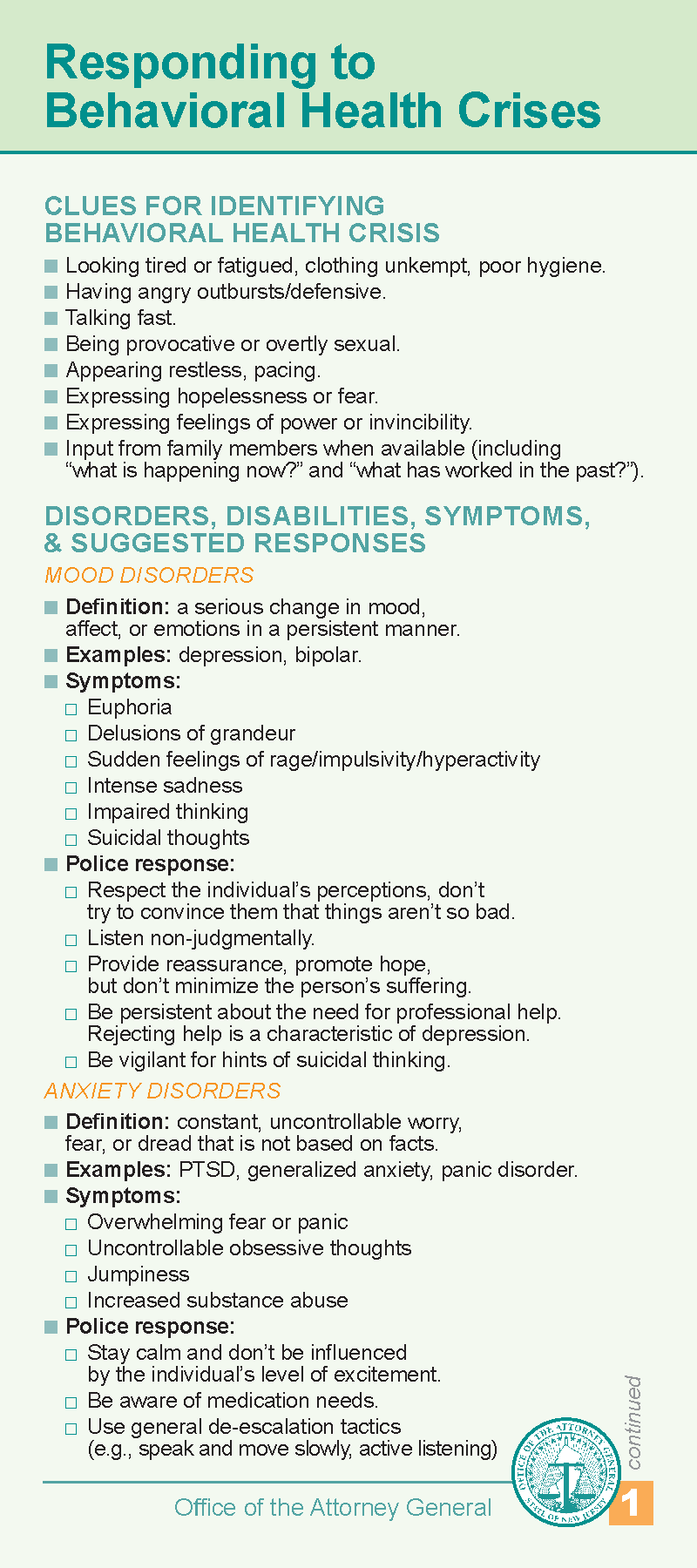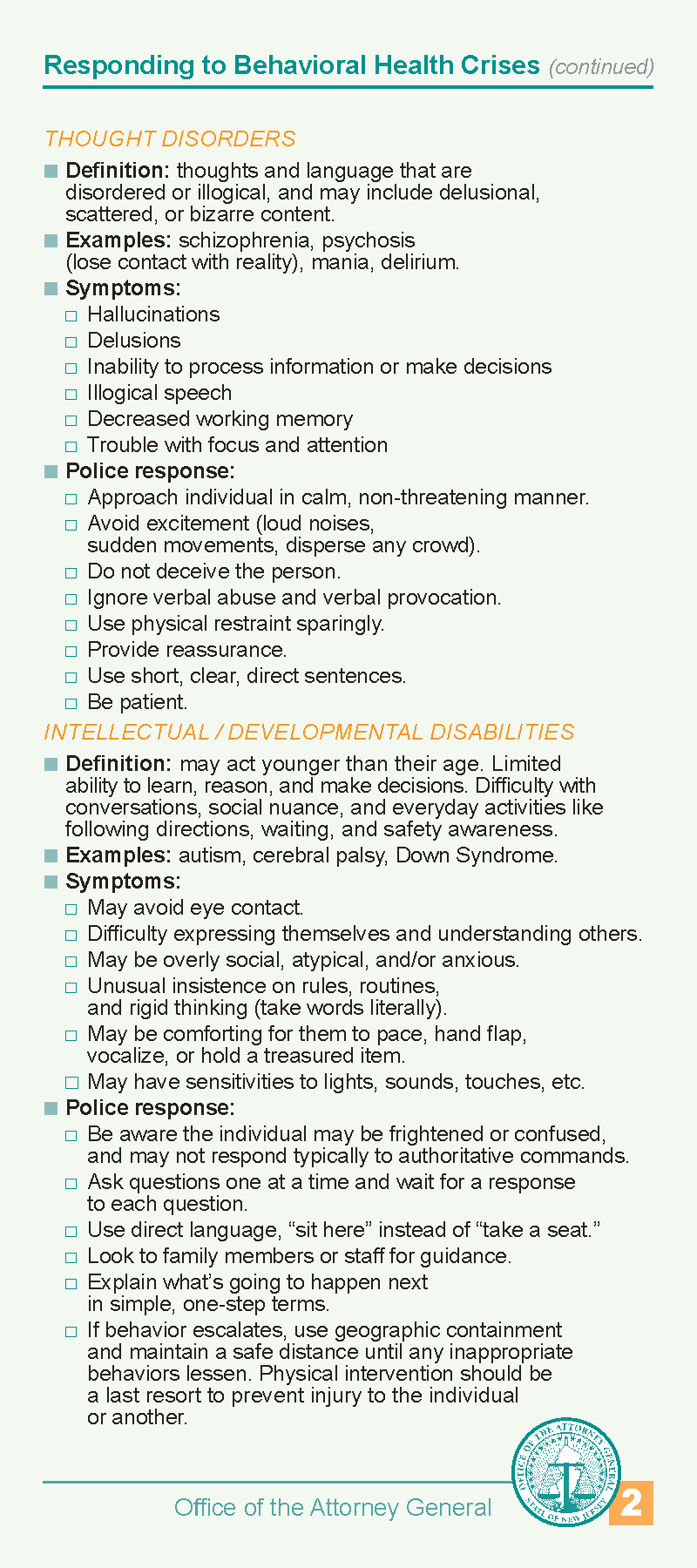Behavioral Health Initiatives
Across New Jersey, two out of every three uses of force by law enforcement involve a civilian suffering from mental illness or who is under the influence. Over half of all fatal police encounters occur in similar circumstances. These numbers are unacceptable.
The Attorney General’s Office is working to improve how law enforcement officers interact with members of the community suffering from mental illness or intellectual and developmental disabilities. Learn more below.
ARRIVE Together Initiative: Co-responder pilot program
In modern times, we ask law enforcement officers to undertake roles they never expected when choosing to serve—marriage counselor, addiction specialist, social worker. And increasingly, police are asked to act like doctors or psychiatrists, determining what drug a person may have taken, or what mental health condition they may be experiencing.
The status quo is untenable. When our system is structured so that the same armed officer responding to a robbery is also the government’s answer to the emergency call of a person in behavioral health crisis, it should come as no surprise that negative outcomes are possible, even likely.
That’s why, in consultation with the Department of Human Services and community stakeholders, the Attorney General’s Office and the New Jersey State Police are piloting an initiative—in line with Governor Murphy’s vision for public safety in the state—that pairs together a State Trooper, trained in crisis intervention and de-escalation techniques, with a certified mental health screener and crisis specialist, to respond to 9-1-1 calls involving behavioral health incidents. We call it our “ARRIVE Together” Initiative.
Operating out of the State Police’s Cumberland County stations, the team will travel that region together in the trooper’s vehicle. Upon arriving at the scene of a qualifying call, the trooper will secure the area to ensure safe engagement is possible—before allowing the screener to take the lead in addressing any crisis at hand.
Connecting a law enforcement officer with a screener achieves at least four important goals. One, having a mental health specialist, rather than an officer, address behavioral health concerns will lead to safer outcomes. Screeners are specifically trained to intervene in crises and perform psychiatric screenings to determine whether an individual may require in-patient psychiatric treatment.
Second, a co-responding trooper and screener will improve resource use on both sides. Traditionally, a trooper interacting with an individual in crisis could either call a screener and wait for them to arrive, or make the decision themselves to transport the individual (voluntarily or involuntarily) to the hospital. By pairing the two, screeners are on scene from the beginning, saving the trooper wait time and preventing situations from escalating. We are using clinical personnel that are already government-funded but deploying them in a way that facilitates a more immediate response.
Third, and relatedly, fewer individuals will end up unnecessarily taken to the hospital. According to the N.J. Department of Human Services, only about a third of individuals in crisis who are transported to the emergency room actually require hospitalization. Screeners have the training and experience to determine when someone should be evaluated for hospitalization and when that individual is able to remain in the community—particularly when connected to services to meet their needs.
Finally, the troopers participating in the pilot will improve their ability to safely support individuals in crisis and gain experience through close, on-the-job interaction with and feedback from screeners. The officers will be engaged in a clinical approach to crisis situations. Combined with proper training, we hope this pilot helps improve the health and well-being of individuals with mental illness and eliminate stigma around mental illness by connecting individuals to care and resources rather than the criminal justice system.
Statewide Mental Health & Special Needs Steering Committee
At the end of 2020, the Attorney General’s Office issued Law Enforcement Directive 2020-14, creating a statewide framework for addressing mental health and special needs populations in New Jersey.
The Directive established working groups in all 21 counties (“County Working Groups”) to review policies, programs and protocols to maximize the effectiveness of their county’s response to those with disabilities or those in mental health crisis. In addition, in order to share best practices and provide support and resources to all counties, the Attorney General’s Office established a Statewide Steering Committee to work collaboratively with the County Working Groups.
Below are links to state and federal resources on the interaction of behavioral health and law enforcement identified by the ongoing efforts of the working groups and steering committee.
- Volunteers of America Delaware Valley and Pine Hill PD IMPACT Initiative
- Cumberland County Prosecutor’s Office Special Needs Registry and Mental Health Dos & Don’ts card
- West Orange Police Department and Mental Health Association of Essex and Morris Collaboration Project
- Bureau of Justice Assistance’s “Police-Mental Health Collaboration” Toolkit
Responding to Behavioral Health Crises: Law enforcement reference card
Pursuant to Attorney General directive, law enforcement officers in New Jersey undergo annual training through the CLEAR Institute (Community-Law Enforcement Affirmative Relations) designed to improve police-community relations. That training has often focused on de-escalation and intervention with respect to individuals experiencing behavioral health crises.
The Attorney General’s Office has used portions of the CLEAR curriculum, in consultation with subject matter experts, to create the below reference card for law enforcement summarizing the types of disorders they may encounter, symptoms that individuals may experience, and suggested officer responses. The purpose of the reference card is not to ask officers to become doctors or psychiatrists, but rather to gather basic resources on behavioral crisis in a single, accessible location.
The double-sided reference card will be distributed to all 38,000 law enforcement officers across the State of New Jersey.




